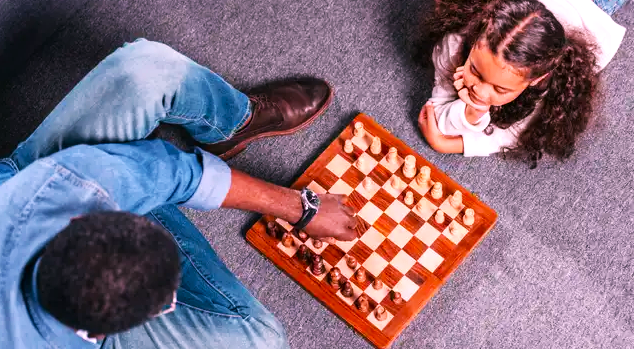Puzzle games have been a popular pastime for centuries, offering entertainment and numerous cognitive benefits. Whether through a classic crossword puzzle or an engaging Jewel game, these activities provide mental challenges that can enhance various aspects of cognitive health. From improving memory to relieving stress, puzzle games are more than just a fun way to spend time. The simple yet engaging nature of these games makes them accessible to almost everyone, allowing individuals of all ages to reap the cognitive rewards they offer.
History of Puzzle Games
Puzzle games have a long and rich history. The first known puzzles date back to ancient civilizations, where they were often used for educational and recreational purposes. Consider the intricate designs and mind-bending challenges of the mazes of ancient Greece or the clever puzzles found in Egyptian tombs. Fast forward to today’s digital age, and we witness a wide variety of puzzle games that continue to captivate audiences worldwide with their complexity and appeal. From pen-and-paper puzzles like Sudoku and crosswords to high-tech electronic and online versions, the evolution of puzzle games mirrors the advancements in technology and culture.
Cognitive Benefits of Playing Puzzle Games
Playing puzzle games can significantly boost brain function. Research from institutions like the American Psychological Association highlights that these games can improve memory, problem-solving skills, and overall brain health. They stimulate neural pathways and keep the mind sharp. Engaging with puzzles can be as effective as more traditional forms of cognitive exercise, offering a pleasant way to enhance mental faculties. These games challenge the brain to think outside the box, improving cognitive resilience and flexibility. Moreover, puzzle games can enhance attention to detail and encourage a methodical approach to problem-solving, both of which are integral to cognitive health.
Improving Memory Through Puzzles
Regularly engaging in puzzle games has been shown to enhance memory retention. They stimulate the brain regions associated with memory and learning, making them a valuable tool for both young and older adults looking to maintain or improve their cognitive functions. Various studies have pointed out that memory-oriented puzzles require players to recall patterns, sequences, and details, helping reinforce neural connections. Episodic memory, spatial memory, and working memory all benefit from the types of challenges presented in puzzle games. This consistent engagement can even help delay the onset of age-related cognitive decline, proving that puzzles are not just for children but also for the aging population seeking to stay mentally active.
Enhancing Problem-Solving Skills
Puzzle games require players to think critically and strategically, fostering better problem-solving skills. According to a study by CNN, challenging puzzles can train the brain to develop innovative solutions and enhance logical thinking. This is particularly true for complex puzzles that require a multi-step approach to reach a solution, which helps improve cognitive flexibility and persistence. When faced with difficult puzzles, players learn to assess situations, consider various approaches, and implement the most effective strategies to reach their goals. This mindset of critical evaluation and deliberate action is transferrable to real-world scenarios, making individuals more adept at navigating life’s challenges.
Stress Relief and Mental Well-Being
Beyond cognitive benefits, puzzle games can also be a source of relaxation and stress relief. Offering a respite from the everyday chaos, they provide a therapeutic period of quiet and focus that can enhance mental health in general. Solving puzzles can lead to a sense of accomplishment and dopamine release, which are natural mood boosters. When absorbed in a puzzle, the mind focuses on a single task, helping to alleviate anxiety and promote a state of mindfulness. This focus can serve as a healthy escape and a means to regain mental balance, making puzzles an effective tool for managing stress and enhancing emotional health.
Social Aspects of Puzzle Games
Many puzzle games are designed to be played socially, whether in person or online. These games can foster social interaction, teamwork, and communication, making them a great way to maintain social connections and engage with others. Group puzzle activities or online multiplayer puzzles create a cooperative environment where players can share strategies, solve problems together, and build stronger social bonds. Social engagement through puzzles can combat loneliness and boost mental health by providing a shared sense of purpose and collaboration. Participating in problem-solving activities with others can help improve communication abilities and foster a feeling of community.
Conclusion
Puzzle games provide an enjoyable and beneficial way to keep the mind active and healthy. They provide a variety of psychological and cognitive advantages, ranging from enhancing memory and problem-solving abilities to encouraging social interaction and relaxation. Whether played online or offline, puzzle games are a valuable addition to any mental wellness routine. So, next time you pick up a crossword or launch a new Jewel game, remember that you’re not just having fun; you’re also giving your brain a much-needed workout. You may take advantage of the many advantages puzzle games provide and make sure your brain health is strong and resilient for years to come by incorporating them into your daily routine.




